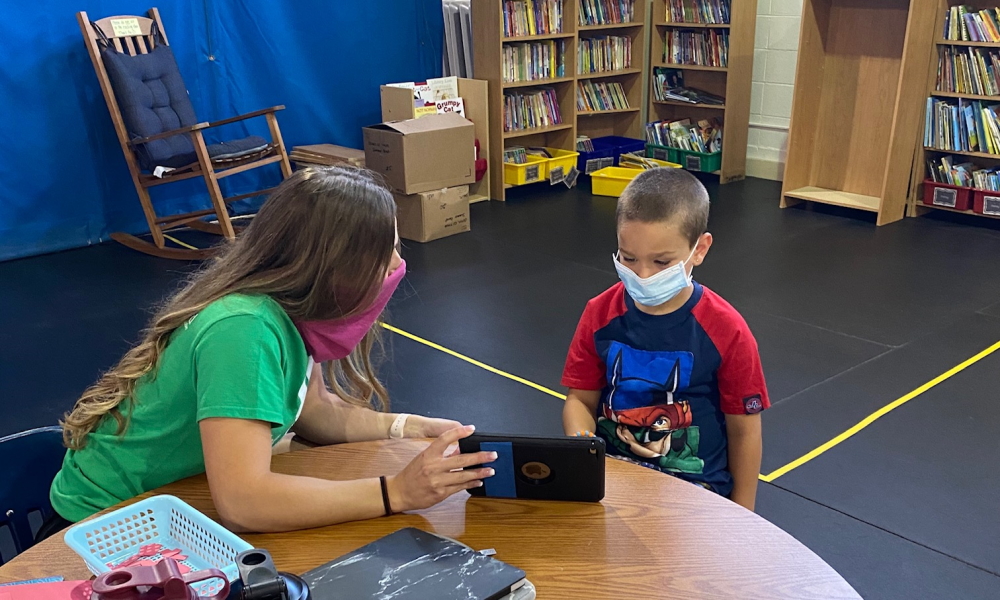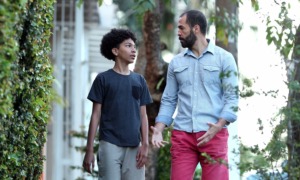
Ocean County YMCA
Ocean County YMCA in Tom’s River, New Jersey, is among many YMCAs across the country that are providing learning centers to give kids access to computers and supervise their online classes when schools go virtual.
As school starts virtually in many parts of the country, YMCAs across the nation are setting up virtual learning centers for students.
“They’ve set up labs to support the school day, not supplant it,” said Heidi Brasher, senior director of strategy and innovation for the YMCA of the USA. She said Ys in at least 45 states will offer the service.
YMCAs have taken their expertise in after-school programming and child care and modified it to provide the learning centers. Kids will attend in small groups supervised by an instructor and parents can be freed up to work.
As of Aug. 26, 21 of the nation’s 25 largest school districts — serving 4.5 million students — were planning to operate remotely, according to Education Week. Based on a sample of the nation’s 13,000 school districts, about two-thirds planned to offer remote-only learning.
“The YMCAs were working directly with school districts and communities to determine how schools were going to go back,” Brasher said. Earlier in the summer, the YMCA of the USA, which functions as a resource for local YMCAs, created a navigational guide to help Ys plan for various scenarios, ranging from regular in-person school, full virtual school or a hybrid of the two.
In July the Houston Independent School District in Houston announced that its schools would open virtually on Sept. 8. Thirteen YMCA sites in that city will provide learning centers. Students will be in groups of nine and can attend for a half-day or full day, according to the YMCA of Greater Houston. The three-hour morning academic session is $25 a day. The afternoon enrichment session is $20.
The sites will serve more than 400 kids, said Ryan O’Malley, director of public relations for the YMCA of the USA.
While YMCAs offer learning hubs for a fee, they often have a sliding scale and some, such as the YMCA of the Triangle in Raleigh, North Carolina, have worked with local government and philanthropy to provide free or reduced-price services.
Memphis gears up to serve at least 10,000 kids
A standout in gaining funding to serve large numbers of children is the YMCA of Memphis and the Mid-South. It opened its first set of learning centers on Monday in partnership with Shelby County Schools, O’Malley said via email.
The city of Memphis had asked the YMCA to serve 10,000 kids, but the Y could not accommodate that many, Brasher said. As a result the Y is partnering with churches and nonprofits across the county to provide space. The estimated number of students needing this service is 10,000 to 15,000, O’Malley wrote.
The learning center is being offered free or at a reduced price to many children because the Y has a contract with Tennessee to provide free child care for families of essential workers, O’Malley said. The Y has raised money from local foundations and businesses; the learning centers are also funded through the federal CARES Act as well as the Child Care and Development Block Grant (CCDBG) for states, he said.
Licensed child care centers are able to qualify for funds under new guidance from the Tennessee Department of Human Services.
Different programs in different cities
YMCAs across the country differ in what they offer, depending on local licensing rules, local government guidelines or CDC rules, Brasher said.
In general, students will be able to log on for three, four or five hours a day of virtual learning, depending on the YMCA, she said. Enrichment is generally offered before and after the instruction periods.
She said sites will have 19 to 45 students divided into small groups of nine to 12 kids with an instructor.
Controversy over learning pods erupted earlier in the summer after parents began coming together to hire instructors to supervise their kids’ online learning. The ability of affluent parents to do this will widen racial segregation and the opportunity gap among kids, according to critics such as a social and emotional learning specialist in Atlanta.
It’s virtual learning that is making the gap wider, Brasher said. “We have had to be part of the solution,” she said.
The Y, which can provide kids and families with access to hardware and access to Wi-Fi, is also experienced in how to meet kids’ social and emotional needs, she said.
This story has been updated.



























